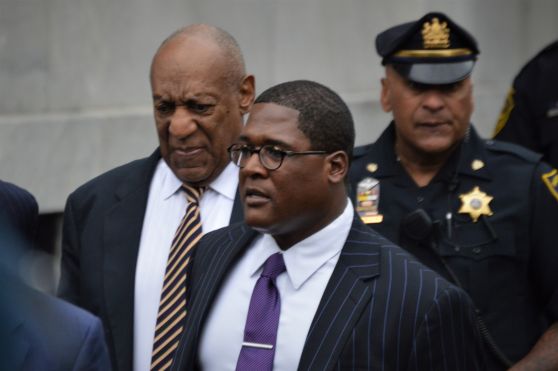In June, television personality Bill Cosby left the Montgomery County courthouse after his trial landed in a deadlock and was declared a mistrial. Cosby was charged with three counts of indecent aggravated assault. Witnesses stated that Cosby drugged them and then sexually assaulted them. Some of the accusations towards Cosby date all the way back to 1996.

“[Cosby’s trial] is shocking because a whole generation of people grew up with him and got it in their minds that was a protective celebrity dad figure,” Veronica Verratti, University of the Arts senior, said.
According to the Pennsylvania Coalition Against Rape (PCAR), indecent aggravated assault is a second degree felony.
According to the PCAR, “A person who engages in penetration, however slight, of the genitals or anus of a victim with a part of the person’s body for any purpose other than good faith medical, hygienic or law enforcement procedures commits aggravated indecent assault, if the person does so without the victim’s consent.”
The PCAR also says that it is an indecent aggravated assault if the victim was threatened or forced, unconscious due to any type of drugs, suffers a mental illness or is “less than 13 years of age; or the victim is less than 16 years of age and the person is four or more years older than the victim and the victim and the person are not married to each other.”
Cosby’s trial sparks a debate on what it really means to give consent and what consent means to people.
“It is important to talk about these trials because lot of people are confused about what sexual assault is and sometimes it gets pushed under the rug,” Ridley High School senior Gabi Smith said.
“[Saying no] should be enough; however, some people think ‘no’ is a joke,” West Chester University transfer Jessica Iadicicco said. “It’s not when it comes to sexual assault.”
“Consent is very important in a relationship so both parties understand what the relationship is and are able to trust each other,” Smith said.
Sexual assault is all too common on a college campus. According to RAINN (Rape, Abuse and Incest National Network), sexual violence is more prevalent on college and university campuses than other crimes.
Cabrini University is in compliance with Title IX laws of the Education Amendments Act. Title IX violations include sex and gender discrimination, sexual harassment, sexual misconduct, sexual violence, sexual exploitation, dating violence, domestic violence and stalking. All of the previous terms and their definitions in the Sexual Harassment and Sexual Misconduct Policy.
Cabrini University defines consent as “words or actions, freely, unambiguously and actively given by each party throughout a sexual encounter, which demonstrate each party’s willingness and agreement to continue to participate in agreed-upon sexual conduct.” The policy also states that consent cannot be given when a person’s judgement is impaired by drugs or alcohol, when coerced, threatened or intimidated, if physical force is involved, when a person’s in a mental or physical condition where they cannot knowingly or voluntarily give consent and a person is not old enough, by law, to give consent.
“My former university, [Kutztown University], used to preach on Title IX and mandatory reporting. They would always say that sexual assault is not tolerated there,” Iadicicco said. “However, when experiencing this situation with a resident of mine, the university did nothing and took no action.”
“Saying no should be enough but there are other ways to say ‘no’,” Smith said. “You can push them away or scream and that is other ways that mean no.”
Drugs and alcohol can play a part in some sexual assault cases. Cosby’s trial and other highly publicized assault trials, like Brock Turner, involved either or both alcohol and drugs.
“If a person is unable to give consent, then it is a no,” Iadicicco said. “If the person is conscious, not intoxicated or drugged, and says yes, then sex is okay.”



This article should actually be entitled, “Bill Cosby TRIAL (not “trail”) is a farce!”
This is an excerpt from Dru Story News. They stated what reporter/writer John J. Simpson stated.
“‘Plaintiff has NO credibility and absolutely no basis regarding her allegations as demonstrated by her voluntary decision to meet with the defendant on numerous occasions at his home, even after unwelcome sexual advances were alleged to have first occurred. If unwelcome sexual advances were made by the defendant, there is no logical reason why the plaintiff would have “trusted him” and continued to accept his invitations to social and professional functions.’ NOTHING about the Constand case is logically consistent with being a real victim of sexual assault. MANY details didn’t add up and former D.A. Bruce Castor, who isn’t on Cosby’s side either, still admitted that. Philly.com reported, ‘Castor said he had been troubled by the inconsistencies in Constand’s 2005 statements to police and by the fact that she had contacted a civil lawyer BEFORE reporting the alleged assault to authorities.’ This is a huge part of why her case, which was presented an entire year after, was dropped. Clearly due to several problems, this was something that could not be brought to court. So, again clear as day, THAT is the reason the case was dropped and why the case should be dismissed.”